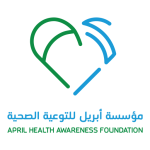This global program, affiliated with major international organizations including the World Health Organization (WHO), the World Organization for Animal Health, the Food and Drug Administration (FDA), and the United Nations Environment Program, is dedicated to raising awareness about antimicrobial resistance (AMR). Over the past seven years, this initiative has become a cornerstone of our Foundation’s work, with our institution being the first in Libya to celebrate World Antimicrobial Resistance Awareness Week (WAAW) since 2017 under the banner of the “Antibiotic Team.” The program has not been limited to raising awareness. It also includes a series of training workshops for the health sector within the Ministry of Health and the Ministry of Research Studies and Statistics, under the auspices of the National Center for Disease Control. These workshops have been integral in fostering a deeper understanding of AMR and the significance of WAAW.
Program Focus:
The program is committed to educating Libyan citizens of all ages and from all walks of life about the correct use of antibiotics. Awareness campaigns have been conducted in various locations across the country .
Sustainability and Reporting:
To ensure the sustainability of these efforts, we have implemented training programs for both the health and educational sectors. Our institution, the April Foundation, is recognized as the authorized body in Libya responsible for celebrating WAAW. We also submit annual reports on this program to the National Center for Disease Control, the Ministry of Health, and the World Health Organization, in alignment with the national plan for antibiotic stewardship, which was endorsed by the WHO in 2019.
Research Initiatives:
As part of this program, we have conducted seven research studies focusing on topics related to citizen awareness on AMR and WAAW. These studies help inform future awareness strategies and contribute to the global body of knowledge on antimicrobial resistance.
Conferences and Engagement:
we have overseen four specialized conferences to commemorate World Antimicrobial Resistance Awareness Week. These conferences have brought together key decision-makers, including representatives from the WHO, the National Center for Disease Control, the Ministry of Health, directors of health institutions, mayors, deans of medical colleges, the Pharmacy Administration, the National Center for Animal Health, and other important figures, to discuss and strategize on combating AMR.
WAAW program statistics:
1-We targeted 40 municipalities in Libya
2 – More than 100,000 citizens were educated on the correct use of antibiotics
3- We conducted a research study on the extent of people’s awareness of the use of antibiotics on 52,000 citizens in Libya.
4- targeted 258 schools in Libya
5- targeted 92 colleges in Libya
6- targeted 315 health care institutions in Libya
7- targeted 35 Qur’anic mosques in Libya
8- targeted 177 commercial markets in Libya
9- targeted 56 government headquarters in Libya
10 – targeted online awareness activity in 14 countries in the year 2020.
10 – supervised 4 special world Antibiotic Awareness Week (WAAW)conferences inside Libya sponsored by NCDC and WHO
Outputs :
1- Signing an agreement between the Ministry of Health, NCDC, and WHO on the national plan for dispensing antibiotics, which was then issued by the World Health Organization. This agreement was signed on 11/2/2019.
2- Approval of the WAAW celebration within the Ministry of Education and circulating the annual celebration within schools
3- Contribution to prepare the draft AMR with NCDC, WHO to the Minister of Health under the auspices of the World Health Organization
4- Conduct a field survey to determine the extent of citizens’ awareness of the correct use of antibiotics under the auspices of NCDC and WHO
5- Ranking fifth as the best country that carried out WAAW activities in 2018 and ranking first in 2021 in the Middle East by the World Health Organization .
6- Forming work teams to raise awareness about the WAAW program within 40 municipalities in Libya.
Time Period : 2017 to date
Target Number: 100,000 Citizens
Target Group: All Categories
Targeted locations : Educational Institutions( Schools and universities )- Religious Centers (Mosques for memorizing the Holy Quran)- Health Institutions – governmental and non-governmental- ublic Spaces ( Markets and other communal areas)- Online Platforms ( Social media channels )
Partnership :








Gallery:




















































